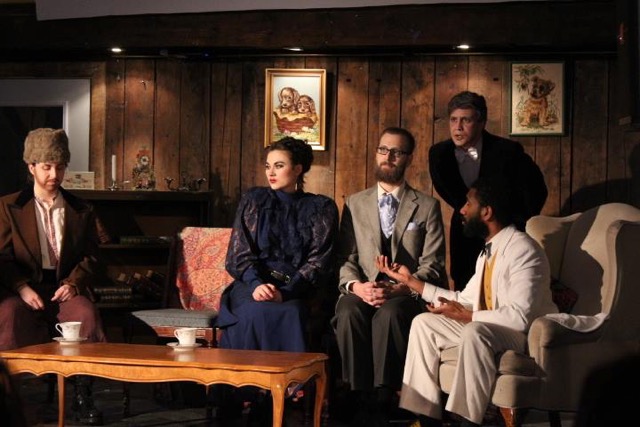The Liberal Arts College Theatre Society embraces farce in its latest production
Anton Chekhov’s The Cherry Orchard occupies a wonderful ambiguity between comedy and drama. While the early 20th-century Russian play is undeniably hilarious, the ending is unabashedly tragic. This weekend, Concordia’s Liberal Arts College Theatre Society put on a production of the play, with all the proceeds going to Literacy Unlimited.
The play was lighthearted and played into the farcical nature of Chekhov’s original text. The plot centres around a wealthy family that has fallen down on its luck and is forced to sell its estate, and the adjoining cherry orchard, to pay its debts.

The mother and uncle try to explore other options to remedy their situation, with the help of a business-minded family friend, while the possibility of romance sparks for daughters Anya and Varya. When all seems about to be resolved, hopes are dashed on all fronts and the family is left to deal with grim reality.
Running just over two hours, the show was a perfect blend of silly and serious. In particular, the scene in which the family governess furiously eats a whole cucumber while passionately delivering her monologue really set the tone for the piece early on. The cast, many of whom have relatively little acting experience, were staunchly committed and unfailingly energetic.
Darragh Khaleesi-Mondoux stood out as the family matriarch who is deeply affected by the bittersweet nostalgia of leaving her childhood home for the last time. The simplistic set design worked well with the atmosphere of Espace Notre-Dame, with its hardwood floors and antique fireplaces.
The production was preceded by a short play by Neil Labute, entitled Coax. The 15-minute one-act tells the modern story of a couple who meet for the first time following weeks of online messaging. What starts out as a commentary on the audience-actor relationship then turns dark as the narrator indicates her intentions towards the other character. The short two-person play was meant to break the fourth wall and force the audience to question the barriers between reality and fiction—but ultimately failed to strike the right cord, leaving the audience feeling unconvinced, if a little unsettled.
The Cherry Orchard, however, hit all the right notes for an amateur production; it’s funny, spirited and it doesn’t take itself too seriously.



